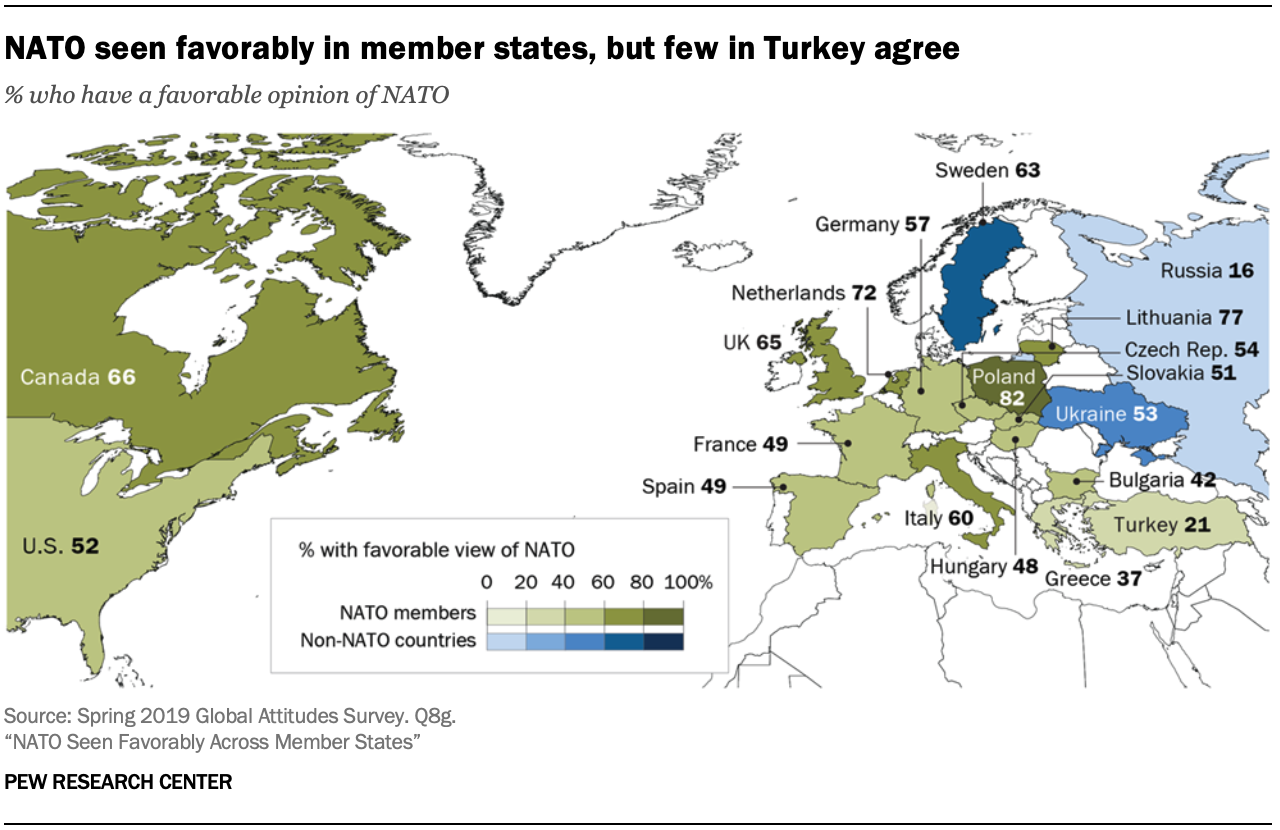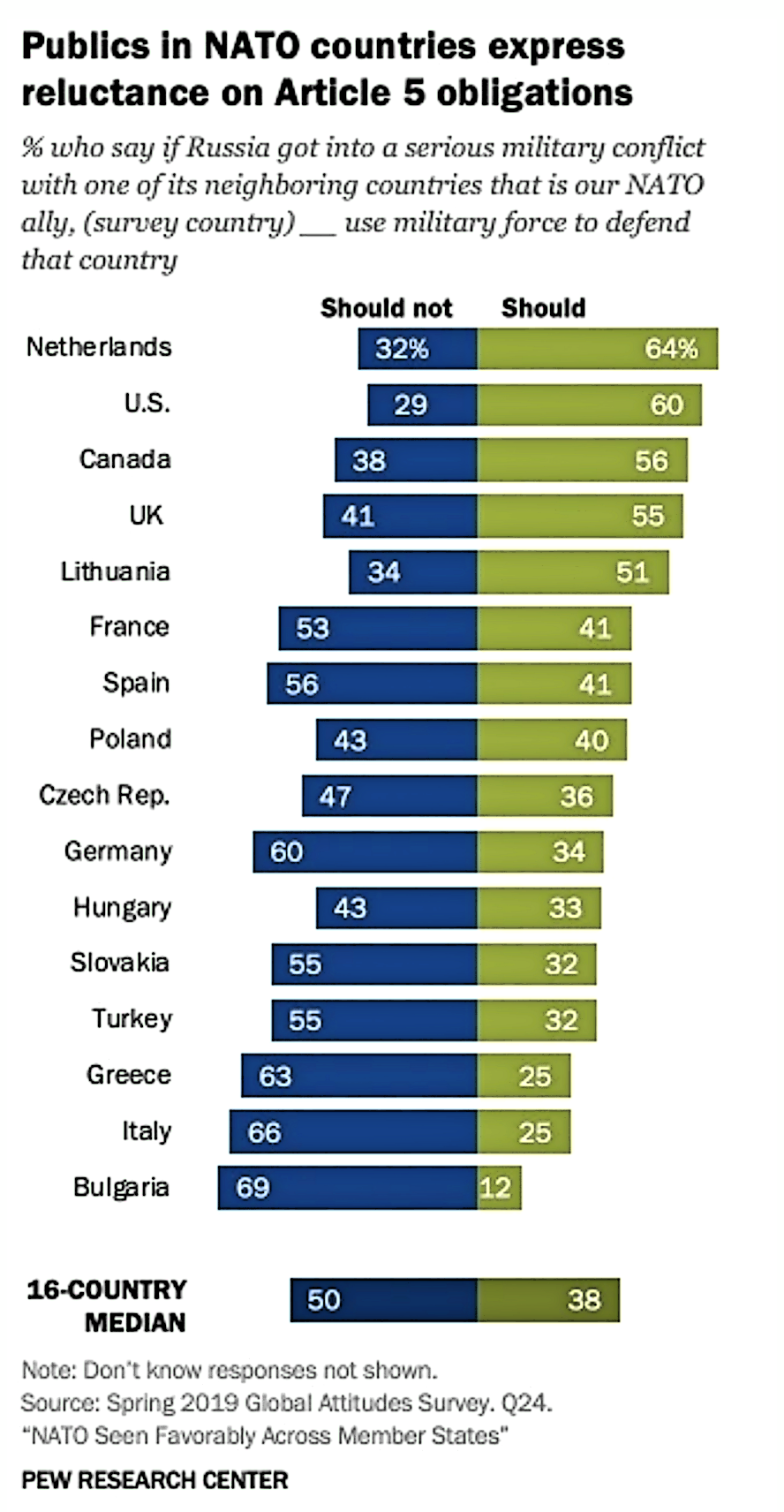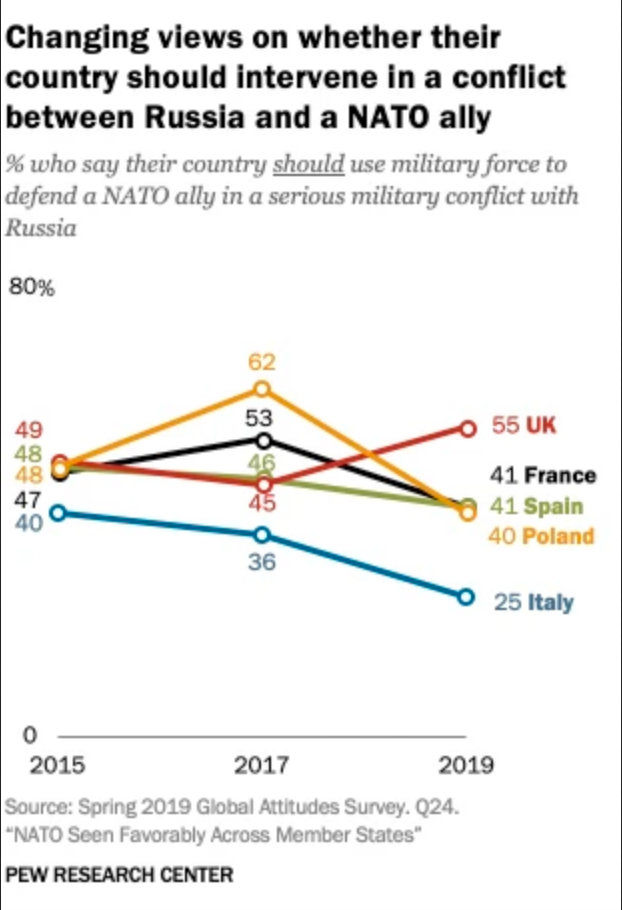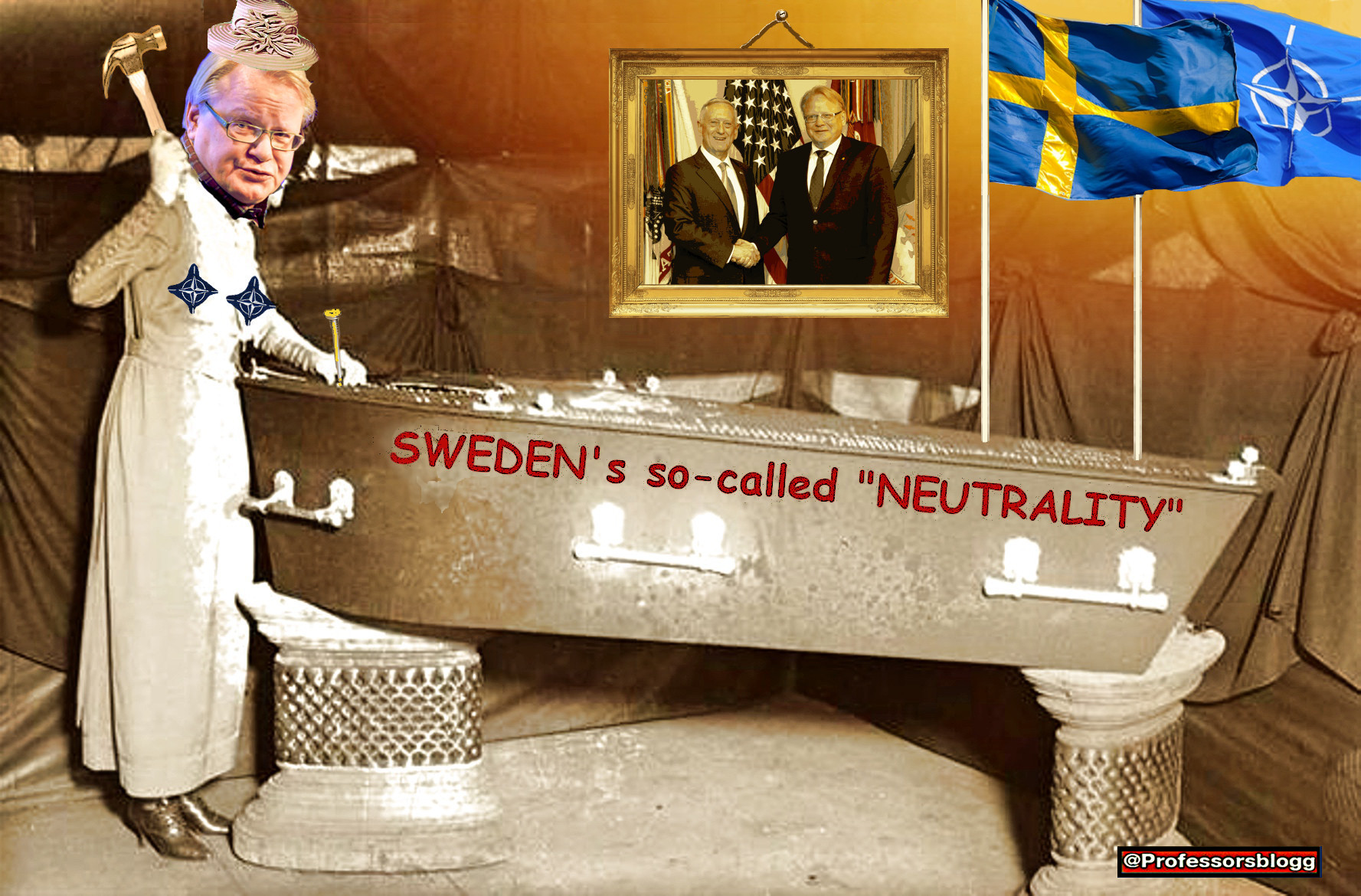By Pål Steigan
Presentation by Prof. Anders Romelsjö: This article was originally published in Norwegian on 18 April 2020 with the title “Liten støtte for «Artikkel 5» i NATOs medlemsland“. I translated into Swedish and republished with the author’s permission, which also authorized this translation done by The Indicter Magazine. The article is an excerpt from a report by Pew Research, a major public opinion institute. It is based on surveys of more than 21,000 people in 19 countries via an interview in the summer of 2019.
I would like to draw attention to the figures corresponding to Sweden. I present additional information (in Swedish) on this issue in the Swedish version at globalpolitics.se
By February 2016, a clear majority in Sweden was against a cooperation agreement (“värdlandsavtal”, or “host-country agreement”) between Sweden and NATO, according to an opinion poll. Among the red-green voters, 70 percent say no to the host country agreement, while 14 percent were positive. Of the right-wing voters, 45 percent say no to host country agreements, while 39 percent were positive. A majority in Sweden is against the Hostland Agreement with NATO.
The very positive view of NATO is also evident from this image (below) published in the Pew Research survey. A table shows that 58% in Sweden were positive to NATO in 2016, 65% in 2017 and 63% in 2019. Compared to 52% in the US, 53% in Ukraine, 21% in Turkey and 16% in Russia. In interviewed countries in Western Europe, only the Netherlands (72%) and the United Kingdom (65%) had higher numbers. This has been discussed in several articles in globalpolitics.se.

Little support for “Article 5” in NATO member states
by Pål Steigan
In a majority of NATO member states, the majority of citizens are opposed to the so-called Article 5, often referred to as “the core of NATO.” Article 5 establishes mutual assistance in an attack on one of the parties to the Treaty, i.e. the principle of “one for all, all for one”. The article reads “… The parties agree that an armed attack against one or more of them in Europe or North America should be considered an attack against all of them …”
But this solidarity pact disagrees with the majority of the citizens of the majority of the member states, according to a survey conducted by Pew Research. The study as a whole gives the impression of a generally positive attitude towards NATO in the member states. It is only in Greece and Turkey that a majority of citizens have a negative attitude towards the alliance. Only 21 percent of Turks and 37 percent of Greeks are positive to NATO.

But the big problem for NATO is that only in five member states there is a majority in support for Article 5. Even when the question is asked like this: “Put Russia in conflict with one of its neighboring countries which is also a NATO member, you will support that the alliance provides military support to that country? “
In only five of the 16 Member States in which the survey was conducted are there a majority to provide such support, as Article 5 requires. The median figure for the 16 countries is 50 percent against and 38 percent for. In major NATO countries, the majority are clear: Germany 60%, France 53%, Turkey 55%, Italy 66%. In Italy, for example, the support for Article 5 has fallen from 36% in 2017 to 25% in 2019 [See diagram below left]. In Poland, the fall is even more significant: from 62% to 40%.

![]() In Central and Eastern Europe, most people want to have a close relationship with both the United States and Russia, while four NATO countries stand out by the fact that the majority far prefer a good relationship with the United States over a good relationship with Russia: the Netherlands, the United Kingdom, Spain and France.
In Central and Eastern Europe, most people want to have a close relationship with both the United States and Russia, while four NATO countries stand out by the fact that the majority far prefer a good relationship with the United States over a good relationship with Russia: the Netherlands, the United Kingdom, Spain and France.
But the European country that stands out as having a most US positive attitude is Sweden where as many as 71 prefer a good relationship with the US and only 9 percent would prefer a good relationship with both. Although Sweden is not a member of NATO, it has become very closely integrated into the alliance in recent years.
Without Article 5, NATO is by far in the way to become a paper tiger. Under Donald Trump’s leadership, the United States has made it very clear that the United States is only willing to defend those countries that pay adequate military costs. In effect, Washington views NATO member states as vassals and uses them as a marching zone and a potential war scene for a possible major war against Russia. When it comes to the inhabitants, the enthusiasm will probably crumble even further.
You may also like
-
Sweden: Reasons given to enter NATO, a contradiction of terms
-
NATO: Sweden Navigates Dangerous Waters
-
Poltava’s geopolitical aftermath and the warmongering of Swedish elites
-
Debunking SvD article on “vaccines disinformation-campaign”
-
Anna Ardin signaled ‘CIA spy’ amidst NATO-Sweden’s plot against Assange
